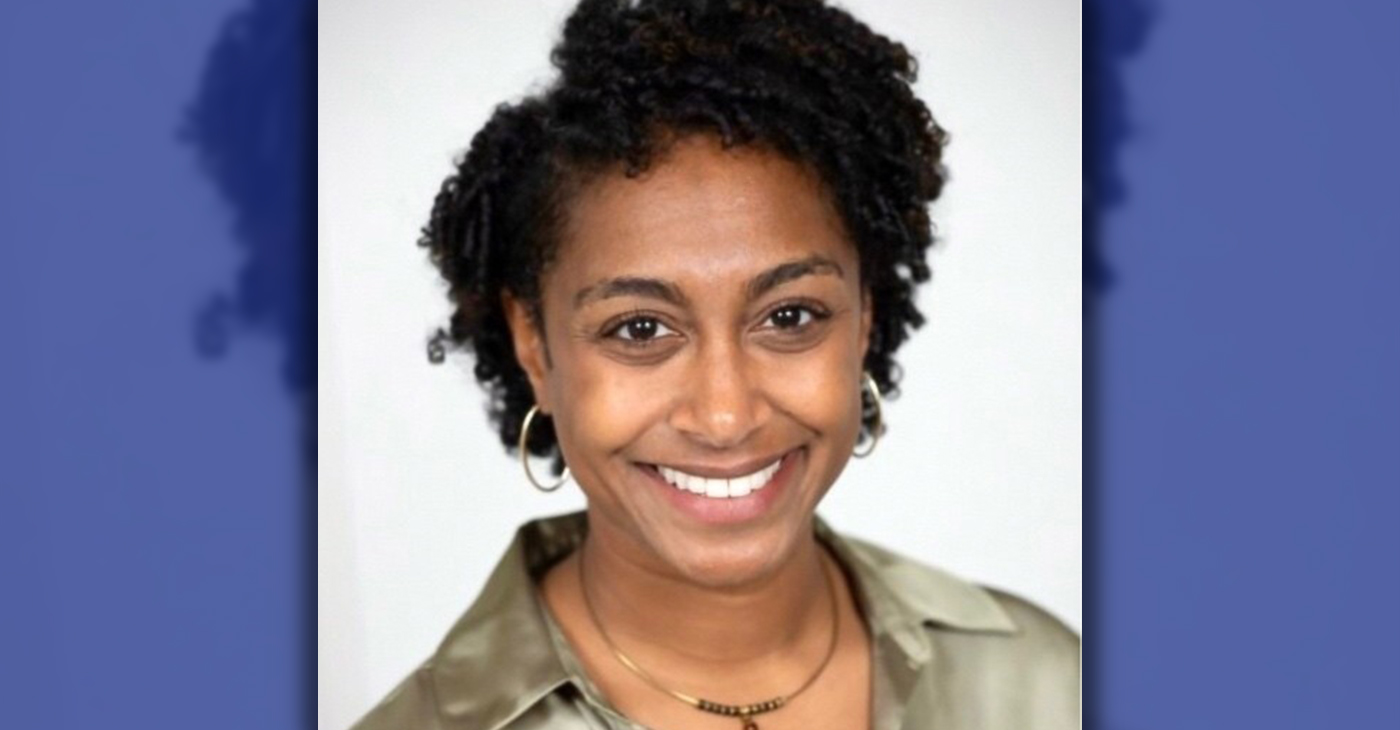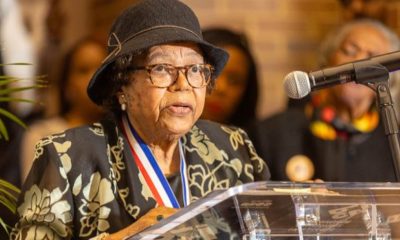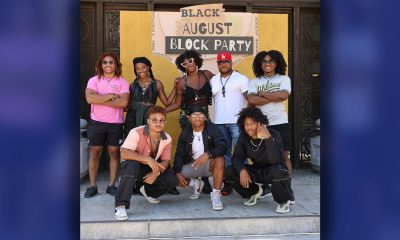Business
Dozens of minority-owned businesses seek ventures with Jeffco
THE BIRMINGHAM TIMES — About 100 small and minority business owners gathered at the Linn Henley Research Library on Monday for the Jefferson County Purchasing Department’s free seminar for Disadvantaged Business Enterprises (DBE). This is the second year the county has held the seminar for small businesses.
By Erica Wright
About 100 small and minority business owners gathered at the Linn Henley Research Library on Monday for the Jefferson County Purchasing Department’s free seminar for Disadvantaged Business Enterprises (DBE).
This is the second year the county has held the seminar for small businesses.
“The purpose of this is so disadvantaged businesses, women-owned businesses, minority-owned businesses can begin to look at doing business with Jefferson County,” said John Henry, chief financial officer for Jefferson County. “The county has not had a proactive approach in the past of welcoming disadvantaged and small businesses to do business with the county, so for the last two years we’ve been making an effort, and will in the future because we want to let people know that the county is open for business.”
Henry said the county’s improved finances “allows us to do a lot more projects and we want those businesses to have the opportunity to compete for those projects.”
DBEs are defined as “majority owned and operated, and controlled by one or more minority groups, including… African-Americans, women, Hispanics, Native Americans and veterans and… the controlling percentage is 51 percent or more of that business entity,” according to the county.
On Monday, business owners were able to meet with members from the Alabama Licensing Board for General Contractors and the Birmingham Construction Industry Authority (BCIA).
Officials from various county departments were on hand to discuss upcoming projects and share opportunities such as maintenance, repair and operational (MRO) type-bids.
Small business owners, Marvette Owens and Felesha Hubbard, both said they obtained valuable lessons from the seminar.
Owens is owner of M. Owens Investments, a real estate investment business specializing in tax liens and deeds and has been in business for a few months now.
“I heard about the event from Facebook and so I just signed up for it,” said Owens. “I learned how I can get contracts or do things through Jefferson County that I did not know. I learned how to register for those things and the different requirements that I need to fulfill in order to be qualified to bid on a contract.”
Hubbard, who owns Alabama Commercial Maintenance Company, LLC with her husband, David, and the firm does commercial and residential improvements such as painting, pressure washing, tiling, erosion control and minor roof repairs.
Hubbard heard about the event through email.
“This is our first year and we were just DBE certified this year . . . I’ve learned that you need to have your certifications and put time and work into your business because it does take time… if you’re going to be in it long term, it’s going to take dedication, . . . you [have] to continue to get out there and network, market yourself and your company and do your work.”
Dr. Michael Matthews, purchasing agent for Jefferson County said, the goal is to “create an inclusive community from which we can purchase goods and supplies . . . based on what has happened today, I think we are moving in the right direction . . . this is a marathon, not a sprint. After this meeting there is a lot of follow-up type work that we have to do to make sure that everyone stays connected and that everyone gets and stays plugged in.”
Next steps are to have more micro-meetings instead of macro-meetings, such as the seminar, said Matthews.
“For example, we want to reach out to all of the cleaning suppliers, engage them and all of the lawn cutting vendors and engage them. We want to start reaching out to smaller segments and having a more intimate one-on-one meetings as much as possible so they can ask very specific questions that’s relative to their commodity,” said Matthews.
This article originally appeared in The Birmingham Times.
Activism
Oakland Post: Week of January 1 – 7, 2025
The printed Weekly Edition of the Oakland Post: Week of January 1 – 7, 2025

To enlarge your view of this issue, use the slider, magnifying glass icon or full page icon in the lower right corner of the browser window.
Activism
2024 In Review: 7 Questions for the California Association of Black School Educators
CABSE members represent governmental agencies, charter schools and charter school organizations, public school districts, traditional public schools, and community colleges. The organization’s primary goal is to expand PK-14 educational opportunities for all students in California, with an emphasis on under-represented and under-served Black students.

By Edward Henderson, California Black Media
The California Association of Black School Educators (CABSE) is an organization consisting of elected and appointed school officials, administrators and instructors from across California who are committed to advancing equity for Black students.
CABSE members represent governmental agencies, charter schools and charter school organizations, public school districts, traditional public schools, and community colleges.
The organization’s primary goal is to expand PK-14 educational opportunities for all students in California, with an emphasis on under-represented and under-served Black students.
California Black Media (CBM) spoke with CABSE President Satra Zurita and Conference Chair Micah Ali about this year’s successes, disappointments, and plans for the organization coming into the new year.
Looking back at 2024, what stands out to you as your most important achievement and why?
Ali: I would have to say that two highlights have been the ongoing support of the Bill and Melinda Gates Foundation, Engie, and other sponsors that have enabled us to bring together like-minded education leaders twice a year to collectively advance innovative and meaningful strategies to achieve change on behalf of Black students across our state.
How did your leadership and investments contribute to improving the lives of Black Californians?
Zurita: CABSE’s leadership and investment in improving the education system for Black students in our great state has resulted in a long-standing focus on transforming public education and its response to Black students. By pulling from the very wisdom of those educators and leaders who care deeply about Black students and who are showing great promise through their efforts.
What frustrated you the most over the last year?
Zurita: Continuing to see the deep impact of COVID-19 Pandemic school site closures on students academically and emotionally — especially Black students. This makes our work and our advocacy more vital than ever.
CBM: What inspired you the most over the last year?
Zurita: Seeing our CABSE convenings grow in depth and breadth — our strategies, powerful content and reach.
What is one lesson you learned in 2024 that will inform your decision-making next year?
Ali: Our Blueprint for Education Equity is a crowd-sourced framework of strategies that have shown great promise for improving the education experiences and opportunities for Black students. In 2024, we developed an equity self-assessment tool for districts to use in evaluating their own efforts on behalf of Black students. Strategies are helping Black students.
In one word, what is the biggest challenge Black Californians face?
Zurita: Many Black students across our state are dealing with a host of challenges: homelessness, food insecurity, exposure to violence, not to mention bias remains a pervasive problem. To add to the challenge, educators are worn out, tired, and frustrated. We now need to think about how we can simultaneously inspire and empower students and educators alike. The system needs an overhaul.
What is the goal you want to achieve most in 2025?
Zurita: In 2025, we hope to stand CABSE up as a fully functioning non-profit organization engaged in research and policy design.
Ali: We also aim to deepen the content of our convenings, including adding a Math Track and what we are calling Social Determinants of Education Track to our annual conference and institute, which will address those social contexts that prevent Black students from realizing their potential as students.
Activism
Let’s Talk Health: Empowering Our Community with Health Literacy
At Covered California, we recognize that understanding health insurance is more than just choosing a plan –it’s about having the knowledge to make informed decisions that lead to healthier lives. That’s why this year’s open enrollment campaign, “Let’s Talk Health,” focuses on breaking down barriers and simplifying the complex language of health care.

By Dr. Monica Soni
Navigating health insurance can often feel overwhelming, especially for individuals and families who are new to the system or unsure about their options.
At Covered California, we recognize that understanding health insurance is more than just choosing a plan –it’s about having the knowledge to make informed decisions that lead to healthier lives. That’s why this year’s open enrollment campaign, “Let’s Talk Health,” focuses on breaking down barriers and simplifying the complex language of health care.
Health literacy is critical for achieving better outcomes, reducing disparities, and ensuring every African American and Black Californian — regardless of their income, ethnicity, or background — has access to quality care. By making health insurance simpler to understand, we empower individuals to access preventive services, manage chronic conditions, and avoid costly medical bills.
Breaking Barriers in African American and Black Communities
This year, “Let’s Talk Health” places a special focus on supporting African American and Black communities, where systemic inequities in health outcomes persist. These communities often face higher rates of chronic conditions and challenges in navigating the health care system. To address these disparities, Covered California partnered with trusted organizations to provide information, tips and resources.
In San Francisco, Andre Atkins, Director of Programs at Rafiki Coalition, led a dialogue with Dr. Kim Rhoads, Community Engagement Director at UCSF Helen Diller Family Comprehensive Cancer Center; Destiny Williams, Health and Wellness Program Manager at Rafiki Coalition; and myself.
These conversations play a vital role in the pursuit of health equity by sharing power and creating spaces where our community can learn, share experiences, ask questions and connect with advocates who work daily to understand their unique needs. Through these efforts, we reaffirm our dedication to fostering equity and inclusion in health care, ensuring that every voice is heard and supported.
Why Health Literacy Matters
Health literacy goes beyond understanding health care terms. It’s about empowerment. It equips individuals to make informed decisions, from choosing the right health plan to finding a provider to deliver preventive care and seeking mental health services. At Covered California, we provide tools and resources, such as side-by-side plan comparisons and financial assistance details, to ensure everyone can navigate their options confidently and access the care they need.
Taking the First Step
Whether you’re a student, part-time worker, family of four, open enrollment is your opportunity to prioritize your health and your future. This year’s open enrollment period runs from Nov. 1, 2024, to Jan. 31, 2025, and we’re here to assist you every step of the way.
Consumers must select a health plan by the Dec. 31 to receive coverage for the entire year, starting Jan. 1, 2025.
To find the plan that’s right for you, and take the first step toward a healthier tomorrow, visit CoveredCA.com and fill out the application yourself or put in your ZIP code and connect with a certified agent in your neighborhood who can guide you through your options. Together, we can break down barriers and ensure that all Californians have the tools to thrive.
Dr. Monica Soni, MD, is the Chief Medical Officer for Covered California, where she leads efforts in health equity, quality transformation, and clinical innovation. As a practicing board-certified internal medicine physician and health care leader with over a decade of experience, Dr. Soni is committed to improving affordability, access, and outcomes for all Californians.
-

 Activism2 weeks ago
Activism2 weeks agoBooks for Ghana
-

 Activism4 weeks ago
Activism4 weeks agoPost News Group to Host Second Town Hall on Racism, Hate Crimes
-

 Arts and Culture3 weeks ago
Arts and Culture3 weeks agoPromise Marks Performs Songs of Etta James in One-Woman Show, “A Sunday Kind of Love” at the Black Repertory Theater in Berkeley
-

 Activism4 weeks ago
Activism4 weeks agoButler, Lee Celebrate Passage of Bill to Honor Congresswoman Shirley Chisholm with Congressional Gold Medal
-

 Activism3 weeks ago
Activism3 weeks ago‘Donald Trump Is Not a God:’ Rep. Bennie Thompson Blasts Trump’s Call to Jail Him
-

 Activism4 weeks ago
Activism4 weeks agoDelta Sigma Theta Alumnae Chapters Host World AIDS Day Event
-

 Business4 weeks ago
Business4 weeks agoLandlords Are Using AI to Raise Rents — And California Cities Are Leading the Pushback
-

 Activism3 weeks ago
Activism3 weeks agoOakland Post: Week of December 11 – 17, 2024























































